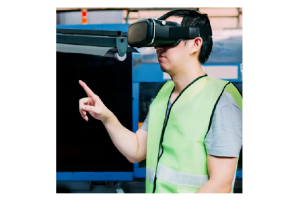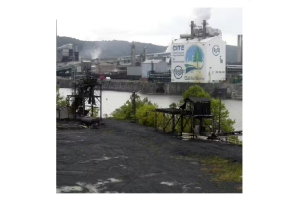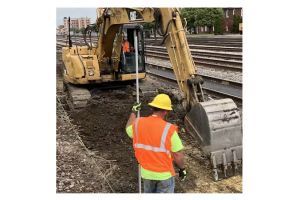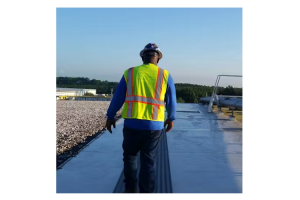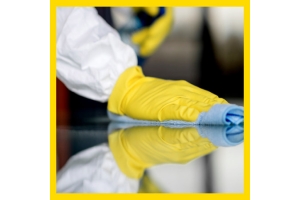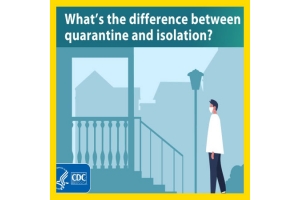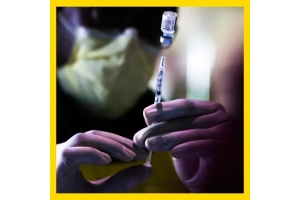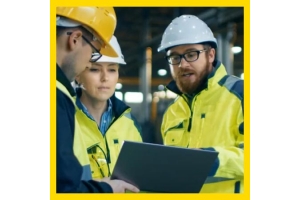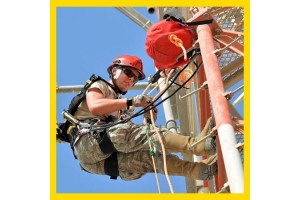Currency
November 15, 2023
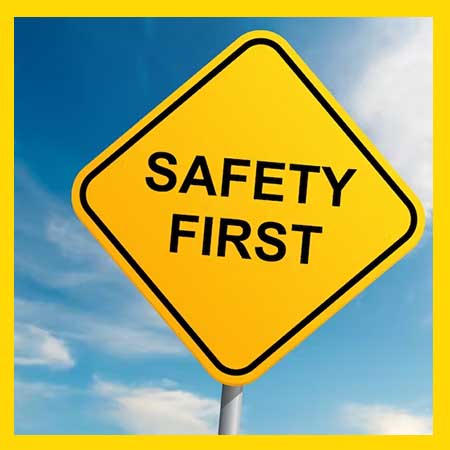
Safety is More Than a Slogan
Safety is more than a catchy phrase; it’s a pledge to protect workers.
I’m a fan of clever, or corny, business road signs. Usually.

But there’s a dentist office near home that irks me. One of their rotating messages reads: “Safety first. Who are we kidding? Coffee first. Safety 3rd or 4th.”
The dentist’s office is located at a busy intersection, and I’ve almost gotten into an accident several times because of drivers running red lights and cars pulling out of parking lots too close to oncoming traffic or making too wide of turns. I must practice defensive driving on those roads, and it’s nothing to make light of.
While I know the dentist office’s sign is meant to be funny, it speaks to a problem for safety professionals. I often hear safety professionals talk about—well, criticize—slogans that make light of safety or make it a personal choice.
We talk about how safety is everybody’s responsibility, and that’s true. But I think the onus rests with employers, which make decisions every day about operations and what risks they’re willing to accept with respect to their employees’ health and safety.
It seems disingenuous to emblazon slogans on T-shirts or banners hung on sides of buildings and call it a day. That’s because it states the obvious while also entirely missing the point.
I struggled to describe why safety slogans irk me, but author Connie Schultz found the words in her novel, Daughters of Erietown. Schultz’s novel was set in a fictional Ohio town in the mid-20th century, but the message is as timely as ever. In the book, one of the main characters works at a plant with a sign that reads “THE BEST SAFETY DEVICE IS A CAREFUL MAN.”
If you’ll indulge me, I’d like to share her character’s reaction to the sign:
“Isn’t that the dumbest-a** thing you’ve ever seen?” asked Malone, a fifteen-year veteran of the plant and a union steward. “As if our being careful is the only problem in this sh*thole. Like it’s Pete Keller’s and Lenny Mulholland’s fault that they can’t breathe anymore, their lungs are so ruined. Or Johnny McHenry’s fault that the company hadn’t replaced that bent fuel shutoff valve on the power boiler. Blew him sky-high and took his f*ckin’ arms. Because Johnny wasn’t a careful man.”
I so enjoy writing profiles for EHS Today’s America’s Safest Companies award program and reading about companies doing safety right. Still, there are plenty of companies that aren’t, even in the United States, as evidenced by the press releases I receive from OSHA each week. And these are just the incidents we know of.
In EHS Today’s 2023 National Safety & Salary Survey, 32% of respondents don’t think their organization prioritizes safety over other production and/or other business demands. The optimists will say a majority do, but I say there’s plenty of room for improvement. So, where does that leave safety professionals at this moment in time?
As an observer, I say it leaves you in a precarious position of trying to prevent injuries while also trying to sell workers on following safety protocols and getting support from management. In our annual safety survey, someone compared working in safety to being Sisyphus, who pushed a boulder up a hill day after day for eternity.
That is certainly a tough place to be, especially because that burden will get heavier over time. My suggestion is, rather than focusing on the uphill battle, look at the situation through a different lens.
At the 2023 Safety Leadership Conference, Rick Fulwiler disagreed with the idea of a safety culture. Rather, he said safety should be a core value across the organization. In other words, safety is the standard way of doing business. Safety, then, becomes the way forward for all kinds of great changes and improvements.
You know your organization and your challenges. Is there a way you can work within the existing system to help change it? Your efforts need not be flashy, and they don’t—in fact, they shouldn’t—require a large sign on the wall.
It can be as simple as having employees put a picture of a loved one in their hard hat to remind them why they should take the extra couple minutes to secure their harnesses. It’s a small way to show the bigger picture. And in the end, it seems those small things, such as a family dinner, really are what matter most.
Safety is more than a catchy phrase; it’s a pledge to protect workers.
I’m a fan of clever, or corny, business road signs. Usually.

But there’s a dentist office near home that irks me. One of their rotating messages reads: “Safety first. Who are we kidding? Coffee first. Safety 3rd or 4th.”
The dentist’s office is located at a busy intersection, and I’ve almost gotten into an accident several times because of drivers running red lights and cars pulling out of parking lots too close to oncoming traffic or making too wide of turns. I must practice defensive driving on those roads, and it’s nothing to make light of.
While I know the dentist office’s sign is meant to be funny, it speaks to a problem for safety professionals. I often hear safety professionals talk about—well, criticize—slogans that make light of safety or make it a personal choice.
We talk about how safety is everybody’s responsibility, and that’s true. But I think the onus rests with employers, which make decisions every day about operations and what risks they’re willing to accept with respect to their employees’ health and safety.
It seems disingenuous to emblazon slogans on T-shirts or banners hung on sides of buildings and call it a day. That’s because it states the obvious while also entirely missing the point.
I struggled to describe why safety slogans irk me, but author Connie Schultz found the words in her novel, Daughters of Erietown. Schultz’s novel was set in a fictional Ohio town in the mid-20th century, but the message is as timely as ever. In the book, one of the main characters works at a plant with a sign that reads “THE BEST SAFETY DEVICE IS A CAREFUL MAN.”
If you’ll indulge me, I’d like to share her character’s reaction to the sign:
“Isn’t that the dumbest-a** thing you’ve ever seen?” asked Malone, a fifteen-year veteran of the plant and a union steward. “As if our being careful is the only problem in this sh*thole. Like it’s Pete Keller’s and Lenny Mulholland’s fault that they can’t breathe anymore, their lungs are so ruined. Or Johnny McHenry’s fault that the company hadn’t replaced that bent fuel shutoff valve on the power boiler. Blew him sky-high and took his f*ckin’ arms. Because Johnny wasn’t a careful man.”
I so enjoy writing profiles for EHS Today’s America’s Safest Companies award program and reading about companies doing safety right. Still, there are plenty of companies that aren’t, even in the United States, as evidenced by the press releases I receive from OSHA each week. And these are just the incidents we know of.
In EHS Today’s 2023 National Safety & Salary Survey, 32% of respondents don’t think their organization prioritizes safety over other production and/or other business demands. The optimists will say a majority do, but I say there’s plenty of room for improvement. So, where does that leave safety professionals at this moment in time?
As an observer, I say it leaves you in a precarious position of trying to prevent injuries while also trying to sell workers on following safety protocols and getting support from management. In our annual safety survey, someone compared working in safety to being Sisyphus, who pushed a boulder up a hill day after day for eternity.
That is certainly a tough place to be, especially because that burden will get heavier over time. My suggestion is, rather than focusing on the uphill battle, look at the situation through a different lens.
At the 2023 Safety Leadership Conference, Rick Fulwiler disagreed with the idea of a safety culture. Rather, he said safety should be a core value across the organization. In other words, safety is the standard way of doing business. Safety, then, becomes the way forward for all kinds of great changes and improvements.
You know your organization and your challenges. Is there a way you can work within the existing system to help change it? Your efforts need not be flashy, and they don’t—in fact, they shouldn’t—require a large sign on the wall.
It can be as simple as having employees put a picture of a loved one in their hard hat to remind them why they should take the extra couple minutes to secure their harnesses. It’s a small way to show the bigger picture. And in the end, it seems those small things, such as a family dinner, really are what matter most.
